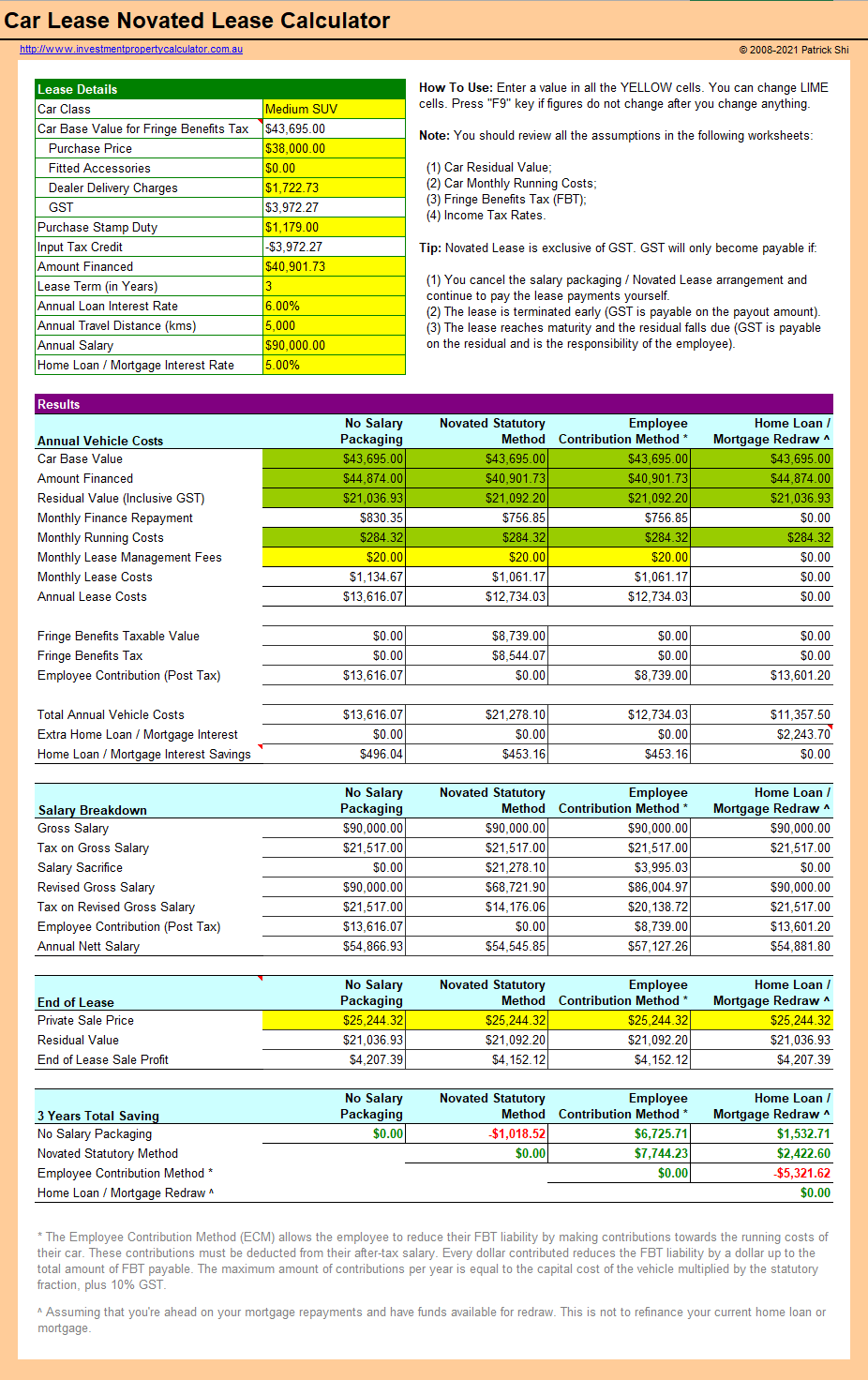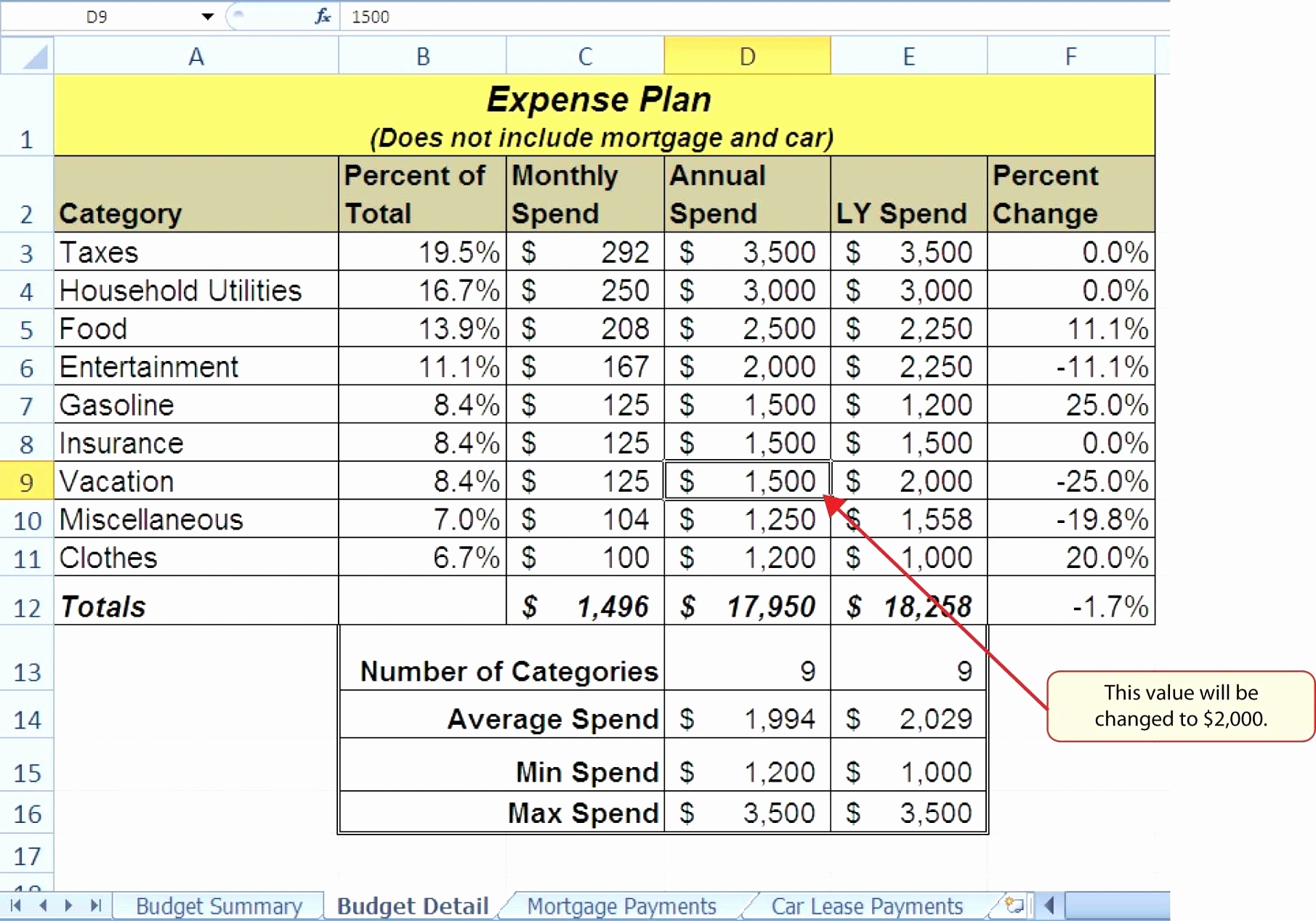|
Leasing cars for personal use wonâ??t automatically guarantee you tax deductions on the expenses, however, if you drive the car for business purposes, you may be able to write off some of the costs. Miles driven to run your business or carry out your work are usually deductible. Mileage from home to work does not count as a deduction as the IRS considers this a commute Novated Leasing Calculator.

This article discusses car lease deduction for independent contractors who use their personal vehicles for business purposes. Read on to see if this applies to your situation -- especially if you are deciding between buying or leasing a car to use for your business.

Note: if you want to discover all the deductions you qualify for, try Bonsai Tax. Our software will scan your bank/credit card statements to discover all the potential tax deductions you can claim. In fact, users typically save $5,600 from their tax bill with our app. Try a 7-day free trial today.
Turn Your Car Lease Payments Into A Business Deduction
Owned or leased, a personal vehicle used for work entitles freelancers to certain deductions. In fact, a sizable car lease can lead to a significant business deduction.
Who Qualifies For A Car Lease Tax Deduction?
If you are an independent contractor / sole proprietor freelancer / any other "non-salaried 1099 worker" and you use an owned or leased vehicle for business purposes in addition to personal use, you likely qualify for a car lease tax deduction.
Car Expenses As Tax Deductions
When it comes to deducting general car expenses, the business owner has two options to choose from: the standard mileage rate method and the actual expense method (also known as "actual cost method") -- but only the latter allows specifically for car lease payment deductions.
Actual Expenses Vs. Standard Mileage Rate Deduction
Each deduction rate comes with its own advantages/disadvantages and it's up to the taxpayer to decide/calculate whether they prefer to use the standard mileage rate or claim actual expenses. Let's quickly review both ways.
The standard mileage rate is a way to deduct "business mileage" (as opposed to "personal mileage" which applies to miles driven for personal use and does not qualify for a write-off). This plan does not allow for other itemized travel write-offs, other than qualifying parking and road fees. However, the wider cost of operating a vehicle is factored into the fixed annual mileage rates set by the Internal Revenue Service (IRS) and the General Services Administration (GSA).
In 2022, you can deduct 58.5 cents per business mile under the standard mileage rate method (and don't forget to log your business miles!)
Those who wish to use the "standard mileage rate" deduction must do so from the start: they can later switch to "actual expenses", but it does not work the other way around.
Another caveat is that, if the taxpayer wants to deduct standard mileage on a leased car, they must get on the program from the first year they lease their car -- and stay on it for all future years of the lease and its renewals.
The actual costs method is an itemized expense-tracking approach that lets the independent contractor deduct several car expenses, such as:
The "actual cost" method relies on the percentage of the business portion of the car usage. Say, your business use is 60 percent and you are making a monthly payment of $400 on it: you can write off $240 for every single lease payment (the same formula applies to the other car expenses in the above list -- gas, insurance, depreciation, etc. -- you ought to be deducting too!)
If you made a down payment at the signing of the car lease, you can deduct this cost as well, as long as you break it up into equally distributed payments over the entire lease period (but watch out for IRS' annual lease limits!)
While technically requiring more book-keeping (make sure to save your business expense receipts!), this method often leads to greater tax savings.
You can only deduct the entire lease payment if you use your vehicle exclusively for business 100 percent of the time.
If you are considering getting a new vehicle, it's worth pondering the tax implications in car buying vs. car leasing. of the tax year.
|
 To enhance your user experience on our website, this site uses cookies.
If you continue to browse, you accept the use of cookies on our site.
See our Privacy Policy
for more information.
To enhance your user experience on our website, this site uses cookies.
If you continue to browse, you accept the use of cookies on our site.
See our Privacy Policy
for more information.